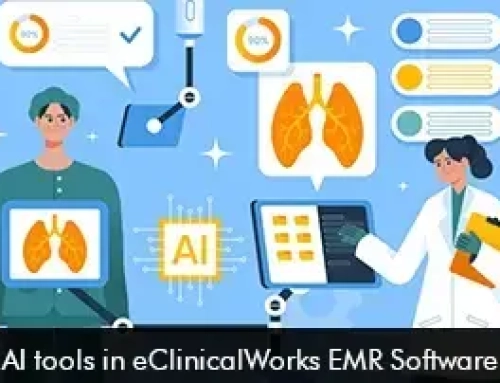Electronic Medical Records (EMR) Software has been widely adopted by healthcare organizations. The robust EHR system can simplify daily workflows, support data exchange, and empower providers to offer high-quality patient care. It comes as no surprise that EMR Software is environment-friendly as well. Kaiser Permanente published a report revealing that Health IT solutions can positively impact the environment, leading to a sustainable healthcare system.
EHR Software and the Green Impact on the Environment
Implementing Electronic Health Records Software not only meets providers’ clinical, administrative, and financial goals. But they play a bigger part in the global environment by conserving resources, and reducing waste, and pollution.
Here are some astonishing statistics about EMR Software and its role in making the environment green, healthy, and ecological.
- 1,000 tons of paper records can be eliminated, reducing the need for cutting down trees.
- Digital X-rays with EHR systems have cut down on 68 tons of X-ray films.
- The process of film X-rays requires toxic chemical usage. With electronic medical records software, this chemical usage is obliterated.
- 5 million gallons of water can be saved annually. This can save both energy and aquatic life and make water available for everyone.
- Medical visits can be avoided with virtual sessions using Telemedicine Software. This can save 3 million gallons of gasoline every year.
The Environmental Benefits of EMR Software Systems
Electronic Medical Records software has various environmental benefits, including contributing to sustainability and minimizing the healthcare sector’s ecological imprint. Here are some of the main advantages:
Reduced Paper Usage
The most obvious advantage of leveraging EHR systems for the environment is the reduction in paper usage. Patient information is stored digitally, meaning providers don’t have to rely on paper records anymore. This can combat the issue of deforestation and climate change. Saving paper can save trees and ultimately human lives.
Minimized Energy Consumption
Electronic devices including computers and servers run EMR software. Even though these devices use energy, they frequently use less energy overall than the energy-intensive procedures needed to print, transport, and store paper-based medical records.
Decrease in Carbon Emissions
The manufacture, delivery, and disposal of paper products can all result in lower carbon emissions when EHR software is used. Healthcare organizations can lessen their impact on air pollution and climate change by eliminating paper-based procedures.
Facilitation of Telemedicine
EMR Software solutions enable telemedicine services to offer remote care to patients. This eliminates the need for patients to travel to the clinic reducing air pollution. Effective and convenient care can be offered from the comfort of the patient’s home, reducing hospital visits and the carbon footprint.
Go Eco-Friendly with Electronic Health Records Software
Going eco-friendly is the need of today. As the environment continues to be harmed by our industries, paper waste, and burning fossil fuels – EMR Software can play a vital role in the promotion of green practices. As technology advances, EHR systems can be updated and enhanced to reduce environmental effects.








